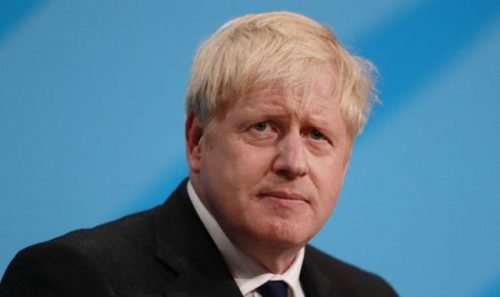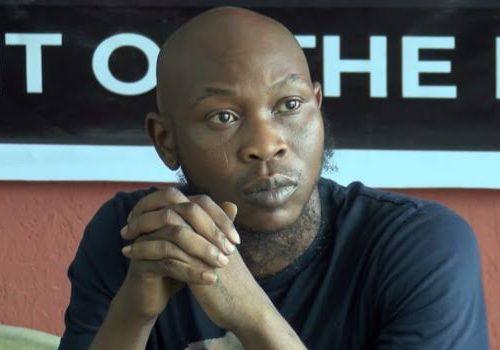Sectors from fishing to aviation, farming to science report being bogged down in red tape, struggling to recruit staff and racking up losses for the first time

On 23 June 2016, Geoffrey Betts, the managing director of a small office supplies business in Marlow, Buckinghamshire, had high hopes for his firm, and the British economy, when he voted for Brexit.
“I thought we would be like … ‘here we go, here we go. We are going to become the most competitive country in Europe and we are going to be encouraging business.’ Now I think: ‘What have we done?’”
Advertisement

To order your copy, send a WhatsApp message to +1 317 665 2180
His firm, Stewart Superior, has survived, but not without major restructuring and huge efforts to get around obstacles that Brexit has put in the way of the export side of the business.
In late 2020 Betts decided there was no option but to set up a depot inside the EU single market – in the Netherlands – at considerable expense, to avoid costly delays in transit, mountains of Brexit-related paperwork at the border, and VAT issues when sending goods to customers on the continent.
The switch means that 18 months on, he has retained a decent slice of trade with customers inside the EU. But because his goods are now distributed from the Dutch depot, tax revenues that would have gone to the UK exchequer now go to the Dutch government instead. Jobs have been created in Holland, not here. Goods that would have been transported from the UK – and created work and employment here – are instead sent direct from the Netherlands to EU destinations, including Ireland.
Last year, with Covid adding to its problems, Stewart Superior lost money for the first time in 20 years.
Betts is “very disappointed” with the UK government. “We are not shipping anything like the amount we were. As a country, we were supposed to be out there trading with the world and yet nothing has happened except we have got a load more paperwork and we have lost lots of our business. It is completely bonkers.”

Asked whether, with hindsight, he would vote Leave if there was a referendum today, Betts says: “I think on the basis of what has happened, I would say No.”
Stewart Superior is one of several small businesses the Observer has been tracking since Boris Johnson finally settled on a hard Brexit and signed a free trade agreement that came into force in January 2021.
Others report the same frustrations. Markets for their goods are there, they say, with potential customers aplenty in the EU. But new obstacles to trade, and hidden costs for customers (particularly demands for VAT on delivery to their doors), as well as the soaring costs of imports caused in part by the post-Brexit devaluation of sterling, mean that in many cases it is simply not worth accessing them.
Unless – that is – companies open a branch back inside the same single market the UK left 18 months ago.
Gyr King, chief executive of King & McGaw, a firm with a turnover of more than £10m, which sells fine art prints online from Newhaven, on the south coast, says he has all but stopped exporting to the EU because of Brexit-related costs and bureaucracy make it uneconomic.
In some cases, he has dispatched artworks to EU destinations only to have them sent back because customers have refused to pay VAT on arrival. For legal reasons, the same goods have had to be sent on another slow and costly journey back to the UK, meaning a big bill landing on King’s desk for an unsold, bespoke item.
In King’s view, Johnson’s hard Brexit defies one basic rule of economics. “If you can’t ship your goods into the biggest market on your doorstep, you have got to be shooting yourself in the foot,” he says.
Leaving the EU has also made it far more difficult to recruit the skilled workers he needs, because the UK no longer enjoys the benefits of free movement of labour. “Brexit has clearly not helped because the reservoir from which we are drawing is much smaller,” he says.
Six years after the referendum which took the UK out of the EU, the economic case for Brexit is proving increasingly difficult for its supporters – including inside the Conservative party – to make.
Most of the trade deals with non-EU countries that the UK has signed have been small in their economic effect, and have merely been “rolled over” from identical ones when we were an EU member. Even Jacob Rees-Mogg, the minister for Brexit opportunities, has stopped talking about Brexit and the UK economy, and instead focuses on what he says is the democratic dividend, the winning back of control, and the return of sovereignty. That is not surprising because day by day the economic data is piling up showing the harm that leaving the EU is doing to the nation’s finances.
Johnson and the Vote Leave campaign promised in 2016 that £350m a month would flow back from Brussels because we would stop contributing to EU coffers.
The impression was that there would be no downside. We would thrive outside Europe’s bureaucracy which was strangling our companies with red tape. The huge benefits of the single market – trading freely across borders, with common standards – were never highlighted by Vote Leave, and rarely by the crudely alarmist Remain camp, either.

Only now, with the worst of the pandemic (probably) behind us, and ministers unable to blame Covid, is Brexit reality being laid bare.
Next year the OECD calculates that the UK will record the lowest growth in the G20 with the exception of Russia whose economy is being drained by its war on Ukraine.
The Office for Budget Responsibility says Brexit will have a long-term effect of cutting UK GDP by a hefty 4%, an estimate unchanged since early 2020. The Financial Times says such a decline amounts to £100bn in lost output, and £40bn less revenue to the Treasury a year. The UK is now behind all the other G7 nations in the pace of its recovery from the pandemic, with exports by UK small businesses to the EU down significantly.
Jonathan Haskel, a member of the Bank of England’s nine-member monetary policy committee, said on Friday that Brexit was “disconnecting the UK from its main trading partners” in a clear example of de-globalisation. An expert at Imperial College on ways to improve productivity, Haskel warned in 2019 that British business investment would likely be weak for several years because of uncertainty linked to Brexit.
Figures from the Centre for European Reform show that the Brexit vote has already depressed economic growth. The independent thinktank said that by the end of last year the economy was 5% – or £31bn – smaller than if the UK had stayed in the EU. Faced with all this, arch-Brexiters are increasingly turning on Johnson. They don’t admit Brexit was a mistake but say it has not yet been made to work.
Richard Tice, the leader of Reform UK, successor to the Brexit party, told the Observer that the grand ideal was still a good one. “Brexit has given us our sovereignty back, so we can make our own laws, and control our money and borders and not be subject to the European Court of Justice.”
It was just that the rich fruits of Brexit were not yet there to savour because “in its utter incompetence, the Tory government has failed to take much advantage so far, with a few exceptions such as being able to do our own earlier vaccine rollout and some trade deals”.
Tory defeats in Thursday’s Tiverton and Honiton and Wakefield byelections suggest that behind the “red wall” and “blue wall” the electoral benefits of saying Johnson “got Brexit done” are not what they were.
In the southwest seat many farmers believed promises on Brexit had been betrayed. There was a sense of rural revolt. Fertiliser and feed prices have soared recently, and payment systems for farmers are mired in confusion.
A constituency steeped in West Country Euroscepticism voted for a profoundly pro-EU party, the Liberal Democrats, sending a tremor through the Conservative party. Other sectors harbour feelings of Brexit betrayal, as the memories of Covid lockdowns fade.
The fishing industry – promised a new lease of life out of the EU – is on the verge of crisis, with rising fuel costs making it almost uneconomic to catch fish, particularly as exporting to the EU is now so burdensome. Trawler crew working on a share of profits now earn less than £3 an hour after diesel is paid for, despite fish being at record prices.
Sarah Ready of the New Under Ten Fishermen’s Association, whose boats are under 10 metres long, said red tape had been increasing since the Brexit vote, and they now faced extra hurdles selling their catches.
Brexit was not supposed to be this way. “Some of the requirements have certainly come since Brexit,” she said. “I think Brexit was a very nasty divorce between us and Europe and obviously they’re not going to make it easy for us on any manner of things.” Paperwork relating to health and hygiene, EU import rules and other monitoring requirements had grown dramatically.
Rees-Mogg said last week he had no intention of monitoring the economic effects of Brexit. “I’m not going to make those sorts of assessments because lots were made before the referendum and they are all bilge,” he said.

Ministers cannot hide reality much longer. What Rees-Mogg was referring to were predictions. Now we have facts, and evidence of Brexit affecting people’s lives. Those flying off on holiday can see queues at airports, longer than before Brexit, and ask: why?
Last week the chief executive of easyJet, Johan Lundgren, contradicted claims by the aviation minister Robert Courts that it was “not likely” Brexit had caused staff shortages which have led to disruption at airports. Lundgren countered that 8,000 job applications from EU citizens had been rejected by his firm because candidates did not have permission to work in the UK.
“The pool of people is smaller, it’s just maths,” Lundgren said. “We have had to turn down a huge number of EU nationals because of Brexit. Pre-pandemic we would have turned down 2-2.5% because of nationality issues. Now it’s 35-40%.”
The permanent state of war Johnson’s government maintains with the EU – blaming it for problems caused by the very Brexit deal he negotiated – is making things even worse.
Take UK science. When the UK was in the EU we played a leading role in the Horizon scheme funding research projects across Europe. We provided more lead researchers than any other European nation and received the second largest funding of any member country.
After Brexit, there was a provisional deal for the UK to continue in Horizon – which backs projects from particle physics to vaccine research – as an associated nation. The UK would pay £15bn into the scheme over seven years while its scientists could still bid for Horizon funding.
Then came the dispute over the Northern Ireland protocol, an issue that so infuriated the EU it has refused to ratify Britain’s associate membership of the €95bn scheme. Those UK scientists who have received recent grants have been told they must move to an EU country to retain access to funds. Those affected include Cambridge astronomer Nicholas Walton who relinquished leadership of a €2.8m star-mapping project to a colleague in the Netherlands, while Carsten Welsch, a Liverpool University physicist, winner of a €2.6m Horizon grant for plasma research, has been told either to move to the EU or hand over leadership to an EU institution – a situation he describes as “heartbreaking”.
The government is working on a plan that would make up for some of the funding lost if our association with Horizon breaks down, as expected. The result will be less cash for UK science, loss of partnerships with the best European scientists, and a reduced international reputation for our researchers.
Another small UK business which the Observer has followed since January last year sells packaging and point-of-sale marketing displays in this country and the EU. Based in Ely, Cambridgeshire, it employs a few dozen people. Its managing director Andrew Moss, like Geoffrey Betts, has gone to hell and back trying to find ways to survive Brexit. He too has set up a distribution depot in the Netherlands. Also like Betts he feels he has got around Brexit’s blockages, but at a huge cost.
“Our growth stopped five years ago,” says Moss. “70% of our turnover was international before Brexit. It went from 70% to 50% to 30%. We would be twice the size we are now if it were not for Brexit.”
www.theguardian.com



















